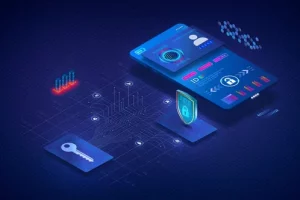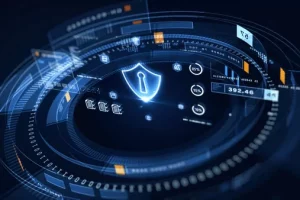How ChatGPT Can Transform the Cybersecurity Industry?
- Posted by 3.0 University
- Categories Cyber Security
- Date July 26, 2024
- Comments 0 comment
Using AI for Ethical Hacking & Cybersecurity
Discover how ChatGPT emerges as the epitome of cybersecurity, setting it apart from other applications in ethical hacking and threat intelligence.
It assists organizations in staying ahead of evolving cyber issues. In a world where digital technology has become a hot topic of discussion, we could say that the idea of security is more stressed today than ever before.
Cyber threats keep changing and getting better. As a result, being on top of things necessitates using cutting-edge technologies. OpenAI developed ChatGPT, an extremely advanced AI language predictor, to compete with new technologies like quantum computers, 3D printers, blockchain, etc.
This article seeks to explore the efficacy of ethical hacking and threat intelligence in the contemporary era. Furthermore, the intent is to address the security of cyberspace, as well as the effectiveness of ethical hacking and threat intelligence.
AI has greatly contributed to the field of Natural Language Processing (NLP). Artificial intelligence is a powerful force in the production of conversational AI systems, one fine instance of which is ChatGPT, which is underway.
This has contributed to the massive growth of NLP. Since November 2022, people have become aware of ChatGPT’s extraordinary features and have given it the name of a real intelligence system.
Nonetheless, the issues surrounding the use of chatbots for malicious purposes are the point of discussion these days.
There are new ways that criminals are exploiting ChatGPT to remove cybersecurity. This article focuses on the various ways that people with bad intentions can abuse ChatGPT to conduct cyberattacks. This study presents the most recent research in this field.
In addition, the positive and negative impacts of cybersecurity were evaluated and discussed by ChatGPT. According to the report, ChatGPT has been, purportedly, used to enable hacking and potentially spread malware.
Continuous development and enforcement of standards is crucial to prevent any undesired consequences. It is important for policymakers and developers to take into account the concerns of the public and the potential for misuse of this tool in order to achieve their goals.
This article also offers practical recommendations for enhancing AI-based systems. [1]
The Power of ChatGPT in Cybersecurity
ChatGPT and Ethical Hacking
Originally, ethical hacking involved the detection and fixing of system vulnerabilities to prevent malicious attacks.
ChatGPT is much more efficacious in cybersecurity, such as presenting false alarm scenarios and cautionary reports that will allow administrators to consider some improvement options.
Hackers that use ChatGPT for ethical purposes can automate repetitive tasks, create ultra-slick phishing attacks, and foresee menace trends and ways of assault according to current threats in the wild.
ChatGPT for Threat Intelligence & Detection
The threat intelligence process is the method of data collection and analysis to be performed before a company takes action to improve its security by collecting and studying data on probable risks so that it can respond accordingly.
ChatGPT is efficient in processing large amounts of data and can benefit cybersecurity professionals by filtering out threat intelligence reports, finding patterns, and providing a detailed diagnosis.
This AI-driven method allows quicker detection and reaction to new threats and significantly reduces exposure to cyberattacks.
ChatGPT Hacking: Revolutionizing Cybersecurity
Hacking, by exploiting certain obstacles in the cyberspace world, can also be a great method of strengthening security.
The art of ChatGPT hacking offers both defensive and offensive cybersecurity solutions, extending beyond confrontation alone. Apart from training the security force in simulation with real-life attacks, it can also generate creative and intelligent chat.
Furthermore, it can learn to defend itself by answering the attacker with a smart response, and it can even create scripts for performing difficult tasks.
ChatGPT hacking, therefore, presents a preferred and stable approach to security, as well as a means of preparing for future threats.
The AI Revolution in Cybersecurity
The AI era is dismantling earlier cybernetics, primarily because in the upcoming years, AI in cybersecurity will become the standard, not an anomaly.
According to the C|EH AI Threat Report, 83% of cybersecurity professionals are AI-erroring the changes, whereas 66% believe they are unequipped. (Source: EC Council) [2]
Also, major findings from the report indicate a significant shift in attack methods, with 83% of respondents attributing changes to AI in cyber assaults.
A majority of companies have implemented multi-factor authentication as a defence mechanism against the most common cloud attack methods.
According to the majority of respondents, regular incident response training is crucial for improving cybersecurity.
Most respondents expressed concern about the significant security threats posed by social engineering and zero-day attacks.
Many experts point out the fact that zero-day vulnerabilities are a major problem and call attention to the necessity of effective defensive actions.
The latest research found that more than half of respondents reported feeling ill-equipped to confront the challenges associated with cyberattacks by AI.
Most individuals anticipate that AI-enhanced social engineering will pose a significant challenge.
The research highlights the importance of quick response times and enhancements in incident response.
Despite their potential, only 10% of assaults were resolved in the first hour.
To cope with the increasing influence of AI in the cyberworld, it is crucial to adapt quickly.
Therefore, it’s crucial to instantly integrate AI-powered devices like ChatGPT into defensive IT systems to stay competitive.
To sum things up, the insertion of ChatGPT is an indication of the immense growth in the field of business, especially when we closely follow the developments in cyberspace.
Through the development of ChatGPT in an ethical manner and with forethought against cybercriminals, one can gain an advantage in the current threat landscape.
However, the future of cybersecurity is more like AI and technology, and the line technology—its AI ChatGPT— It looms as a means of transformation.
If you’re looking for an AI certification course or a cybersecurity online certification course, register now at 3.0 University.
You may also like

Firewalls & Future of Cybersecurity Careers in 2025


